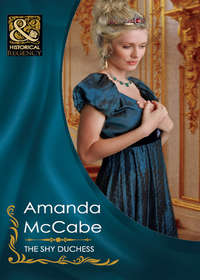
Полная версия
NOTORIOUS in the Tudor Court: A Sinful Alliance / A Notorious Woman
Now, her gaze dropped back to the cards, and she laughed merrily. The gossamer cord slackened, and she was an opaque mystery again.
Surely he would never know what madness came upon her, upon them both, in the garden. She would kill him if she could, yet that cold fact never lessened the flame of pure need that seemed to flare up whenever they were near each other.
He would just have to take care not to come near her.
She was obscured from his sight by a line of pages bearing platters laden with more wine and fresh sweetmeats. Suckets of fruit in syrup, marchpane, jellies, “kissing comfits” made of sugar fondament, all to fortify the hungry gamblers.
“Nicolai!” Dona Elena called. “Would you sing for us?” She turned to Marguerite. “Señorita Dumas, Señor Ostrovsky has the loveliest voice, a veritable Orpheus. Yet he has rarely favoured us with it on this journey.”
Marguerite smiled at her, not looking at Nicolai. “I hope that this will be an occasion for a song, then. I adore music, and have missed it sorely since I left Fontainebleau.”
“I knew it,” Don Carlos said. “You French could never be as cultured as the Spanish, señorita, but you do share our love of fine music.”
Marguerite laughed. “Unlike our English hosts?”
“Do the English compose any good songs at all?” Señrita Alva asked, wrinkling her pretty nose. “Surely the queen must listen to some in her own apartments, but I have heard little but noise.”
“Do you know of any fine English songs, Monsieur Ostrovsky?” Marguerite said, looking to him at last. Her eyes were no longer sad and hollow, just flat and icy. Unreadable as a deep green forest. “You have travelled so much, I hear, you must know much of other lands and their music.”
Nicolai shrugged. “Perhaps I know one fine English song, yet I could not say if it would please you, Mademoiselle Dumas.”
“Oh, la, I am not so difficult to please as all that! A goblet of wine, some sweets…” She held up her bowl of suckets, skewered with a long, forked sucket spoon. “A melodic song from a handsome man, and I am most content.”
“You see, Nicolai, you cannot disappoint our fair guest,” Dona Elena said. “She is a homesick stranger in this cold land, just as we are.”
“And music is the universal language to warm any chilly night,” said Marguerite.
“I would never wish to disoblige two lovely ladies,” Nicolai answered. “If it is an English song you desire, ’tis an English song you will have.”
Nicolai tuned his lute again, strummed a few chords, standing as he began his song. The words were only half-remembered, a poem by Sir Thomas Wyatt, who, like Nicolai, had led something of a nomadic life. They had caught Nicolai’s fancy and he set them to music, only for his own amusement. He had never sung them for an audience until now.
And truly it seemed only an audience of one. Marguerite’s steady gaze followed him as he strolled around the room, stopping beside this lady and that while really he sang only to her.
“‘And wilt thou leave me thus, that hath loved thee so long in wealth and woe among? And is thy heart so strong as for to leave me thus? Say nay, say nay!’”
Marguerite propped her chin in her cupped hand, wine and sweetmeats seemingly forgotten as she watched him. Her face was bland, serene, she gave naught away, yet she did not turn from him. And, deep in her eyes, there was spark like a ray of light in that ancient forest.
“‘And wilt thou leave me thus, that hath given thee my heart never for to depart, neither for pain nor smart? And wilt thou leave me thus? Say nay, say nay!’”
He smiled at Señorita Alva as he rounded her table and she giggled back, but he ended his song next to Marguerite. Her shoulders tensed warily beneath the white satin of her gown, yet she did not turn away.
“‘And wilt thou leave me thus, and have no more pity on him that loveth thee? Alas thy cruelty! And wilt thou leave me thus? Say nay, say nay!’”
Nicolai strummed out the last of his tune, a soft flurry that echoed the “say nay, say nay,” and the song died away. He bowed amid applause, his watchful gaze never leaving Marguerite.
“Well, mademoiselle, what say you to my song?” he asked. “Did it please you?”
She paused for a long moment. “Perhaps there is one fine English song. When it is sung by a Muscovite.”
There was a wave of laughter, a round of more wine. “Perhaps you would favour us with a French song, Señorita Dumas?” Dona Elena asked. “I am sure you must have a pretty voice.”
“Not as pretty as Monsieur Ostrovsky, I fear,” Marguerite said. “I would make a poor showing after him, especially as I am rather weary. I would be most happy to sing for you on another occasion, though, if I am given a Spanish song in return.”
“Another time, then, Señorita Dumas. We will look forward to it,” Dona Elena said kindly. “Nicolai, will you escort Señorita Dumas to her chamber? We have kept her too long tonight.”
“Oh, no, Dona Elena, one of the pages will light my way back,” Marguerite said. “It is not far, and I would not wish to deprive you of Monsieur Ostrovsky’s interesting company. Thank you for your kind hospitality tonight, I have greatly enjoyed it.”
With a graceful curtsy, a swirl of white-and-silver skirts, she was gone, led by one of the eager young pages. The chamber went back to its low hum of conversation, the soft flicker of new hands of cards being dealt. But to Nicolai it seemed that all the light had vanished, leaving only smoky, smudged shadows.
Dona Elena beckoned him closer. “She is very beautiful, is she not?” she whispered.
Nicolai smiled. “I think that can hardly be denied.”
“Yet she seems so sad. She is an orphan, you know, with no one to look after her interests in this world.”
Nicolai thought Marguerite more than capable of seeing after her own “interests.” But Dona Elena was right about the sadness. Sometimes it seemed to cling to Marguerite like a winter mist, blurring and obscuring her real self, hidden behind that beauty, which was all anyone seemed to see. “It was kind of you to befriend her.”
“And you, too, Nicolai? Your song tonight seemed to cheer her. Truly, amado, you are the most merry person I know!”
“Dona Elena, are you trying to matchmaker again?” Nicolai teased.
She laughed. “You could not marry a French woman! But everyone needs music, diverting company. Especially lonely young ladies—as long as it does not go too far.”
Nicolai remembered Venice, his hand on Marguerite’s naked thigh, his mouth on her breast, the smell and taste of her wrapping around his senses, driving him to lunacy. They had already gone past “too far”!
“I fear Mademoiselle Dumas could hardly escape my company,” he said. “We are to work on a pageant together.”
“Very good! I am sure it will be the finest ever seen in this dull place. Now, will you sing us another song? Señorita Alva seemed to enjoy the last one as well…”
Chapter Ten
Marguerite slipped the thin wire into the lock and, with a quick flick of her wrist, popped it upward. She felt the give of the mechanism as it parted, and the lock fell from the box’s clasp.
Really, she thought. These Spanish are surprisingly lax. That lock was far too easy to pick. Could it be some kind of trap, a test? She glanced back over her shoulder, but the room was empty. Silent.
She had noticed this box during the card party, a plain, unadorned wooden chest of the sort often used to transport or store documents. It sat amid a welter of empty diplomatic pouches and blank sheets of parchment on a table near the window, too tempting to resist. It could not contain anything too secret; Don Carlos did not strike her as a fool. But any information at all could prove useful.
And Marguerite sorely needed a distraction from thoughts of Nicolai. When she went to lie down in her bed she could not sleep, for she kept hearing his song in her mind. And have no more pity on him that loveth thee.
Marguerite frowned as she slid the lock free and raised the lid of the box. He was a talented actor indeed, for his words, his countenance, his entire being reflected the words as he sang, as if he truly knew what love was, what it could be. As if he alone possessed the secrets to all hearts.
She could never share that knowledge, for love was only a mystery, a puzzlement, to her. She had seen it only as a lie, a game, a flirtatious song with no meaning behind it. A hollow, shining little bubble.
And that was all Nicolai’s poetry was, too. Yet his eyes imbued the sweet words with more…
“Couilles,” she cursed. The wire she still held bit into her hand as her fingers tightened over it, leaving a thin line of blood. Nicolai Ostrovsky was a distraction, and she had to forget him. Work was all that mattered.
Hastily wrapping her hand in a handkerchief so she wouldn’t leave telltale spots of blood, she began to sort through the box. The papers appeared to be personal letters to Don Carlos and his attendants, as well as an inventory of the rich gifts brought for King Henry. She had been right, there was not much here to be of help to King François. All the information she gleaned as she surveyed the missives told her only what she already knew, that the Spanish were to stop the French alliance in any way they could. That they were allied with Queen Katherine, as always.
She quickly memorised a few useful titbits, and started to put them back carefully in the order she found them. But in the bottom she found one more letter.
Marguerite unfolded the parchment, soft from its journey, from having been read many times, even though the date written on the back indicated it had only been delivered yesterday.
“For the most exalted Duchess de Bernaldez—or should I say Mother? I trust your journey was safe and England all you expected. May you and Don Carlos achieve all your ends and return home to meet your new grandson, Antonio Velazquez. Julietta was safely delivered…”
Ah, a letter from her son. For the first time, Marguerite felt she was intruding by reading those words. She started to refold the letter, when Nicolai’s name caught her eye and she glanced at it again.
“…as I cannot be there to guard you myself, you must always continue to put your faith in Nicolai and trust him as you would me. I know I told you this before, when I sent him to you, but I will rest easier knowing he watches over you. My dearest Mother, you go into the lion’s den at Greenwich, yet Nicolai’s sword arm is strong, his mind shrewd. He saved my life, and Julietta’s, too, or there would be no Antonio crying in his cradle this morning. Listen to his counsel and stay close to him, and with God’s blessing we will all be together this summer.”
Strong and shrewd. Truly he was both, the most formidable obstacle she had found in England. The Englishmen, like Tilney and his ilk, were blinded by her good looks and fine clothes, her sweet smiles. They did not suspect she was anything more than a French featherhead. And King Henry was too occupied by his diplomatic meetings and Mistress Boleyn to even look about him. Her face, the face she inherited from her beautiful courtesan mother, was always the best mask to hide behind.
Yet when Nicolai looked at her with those sky-blue eyes, she sensed that he saw more than her pretty façade. That his own life of masks enabled him to peer right through hers, to all the tangled, black ugliness beneath.
Why could he not just go away, back to Venice or Russia or—or anywhere but here?
Marguerite put the missive back in the box and slammed the lid. In the next room, Dona Elena’s bedchamber, she heard a burst of laughter and chatter as maids came in to clean. It reminded her that she had lingered too long over the papers. She clasped the lock and dashed out of the room, silent on her tiptoes, skirts held close to her sides. Once in the corridor, she smoothed her hair and glided slowly away, as if she hadn’t a care in the world and no reason to hurry.
It was quiet in this wing of the palace, aside from the servants airing the rooms and setting fires in the grates. The men were all in conference with the English king, and Dona Elena and her ladies walked in the gardens again. Marguerite had seen them set out from her window, and excused herself from Claudine to check this box while she had the chance. Marguerite doubted Claudine, embroidering with her attendants and snappish from morning sickness, missed her at all.
She started to turn back toward the French apartments, but realised she had no desire to sit placidly and sew with a woman who did not like her, who thought she dallied with her husband. Marguerite had listened to the other ladies giggle over the démodé English fashions until she thought she would scream from it. Whatever had come over her in the gardens last night—that wild madness that made her long to fly away into the sky—had not left her. Not entirely.
Rather than go to her room, she turned instead down the staircase and followed it until she was out the palace doors and into the garden once more. She did not wear a cloak or surcoat, only her black-and-gold velvet gown, but she did not feel the bite of the wind as she hurried along a gravel pathway.
There were not so many courtiers out this morning, just a few people whispering together as they strolled along. They watched her curiously as she passed, yet no one stopped her. She feared she could not make polite conversation right now anyway.
She hardly knew where she was going, she just walked and walked, hoping that the exercise would burn away that strange restlessness. She rounded a corner of one of the tall, sculpted hedges, and found that her steps had led her to the theatre.
The doors stood half-open to the winter breeze, and she drifted toward them, as if compelled to move forward by some dream or spell. She didn’t want to go in there. What if Nicolai waited, luring her to him with his tightrope, with a freedom she knew was not hers? But her steps wouldn’t turn, and she soon found herself inside.
The splendid theatre, with its elaborate painted sky, its shimmering hangings, was silent and darkened. The only sound was a faint, distant hammering as Sir Henry Guildford’s servants built new scenery. The air was chilly, smelling of new paint, sawdust, sweat and stiff satin. Like all places of night-time merriment, in the day it had a forlorn, shabby air, a deep loneliness that suited her strange mood today.
Marguerite shut the doors quietly behind her and crept deeper inside. Soon, this space would be a castle or a meadow, Mount Olympus or a heavenly cloud. She preferred it like this, quiet and empty, all its possibilities still ahead, still intact.
She tiptoed into Nicolai’s little room. The rope was coiled in the corner, a few travelling chests stacked against the walls. Had she not just determined to stay away from Nicolai, that he was a distraction she did not need? Yet here she was.
He was not there, but she could vow that the smell of him lingered in the air, that clean, fresh herbal scent. The very essence of him.
Marguerite opened one of the chests, peering inside to find thin, shining rapiers wrapped in a length of brown velvet. They were stage blades, of course, not as sharp and lethal as her own hidden sword and daggers, but dangerous enough if wielded correctly.
She remembered one afternoon in the Piazza San Marco, when she watched Nicolai and his troupe performing for a raucous Carnival crowd. It was a scene where an adventurous wife and her lover were confronted by the buffoonish husband. Nicolai was the lover, of course, and even masked, clad in closefitting, multi-coloured motley silk, he radiated sexuality, bawdy good humour. All the comic wiles of the wife and lover did not turn away the angry husband, and Nicolai at last had to fight him. Perhaps with these very blades, he had parried and feinted, pricked and prinked, tumbling and leaping out of the increasingly clumsy husband’s way.
At last the husband was defeated, frustrated, his black robes in rags, as the Arlecchino ran off with his wife. By then, every woman around Marguerite would have gladly shared the wife’s fate.
Marguerite, though, now sympathised with the husband. She, too, was most thoroughly befuddled by Nicolai.
She drew out one of the blades, balancing its gilded hilt on her hand. The thin cut still stung a bit, but the hilt was light on her palm, well balanced, shimmering in the dusty light. She lifted the blade in prima, the first guard position, with her arm high to the right, palm facing out. She moved smoothly into seconda, the second guard position, palm down, arm at shoulder height. Terza, arm at waist level, palm to left.
Then she raised her arm again, lunging forward on the right foot, sword thrusting ahead. She imagined it plunged into Nicolai’s maddening, confusing heart. The blade was light, and whistled in the still air as she sliced it across and stepped into a reverse pass, her right foot moving back, kicking her skirts out of the way.
“Brava, mademoiselle,” she heard Nicolai’s Slavic voice say. She whirled around to find him standing just inside the doorway, arms crossed over his chest as he watched her intently. “You are very deft.”
“I was trained by Signor Lunelli, the famous sword master from Milan,” she answered. Her heart still pounded, and she remembered pretending it was him she stabbed at, his muscled chest that met her slicing blade. “But I fear I am out of practice, with these easy days at Greenwich.”
“You? Ah, no, mademoiselle. I am sure you could never be—out of practice.”
“Perhaps not any longer.” She reached down and slid the tip of her sword beneath the blade that still lay on the ground. She caught it up, flipping it in one neat movement toward Nicolai.
He caught the hilt in his hand, reflexes sharp despite his lazy appearance. He gave her an amused half-smile.
Marguerite adjusted her stance, lifting her blade invitingly while also carefully situating her guard. “En guard, monsieur.”
Nicolai’s smile widened, and he took up his own stance. At first they circled each other warily, blades poised, trying to gauge weaknesses, techniques, strengths. Marguerite’s senses shimmered with tense awareness; it was as if time slowed around her, and she was attuned to every tiny flicker of his muscles. Every shift and movement and breath of his body.
There was a small noise outside their hidden room, the distant fall of a hammer. Nicolai did not turn, but she saw his eyes widen slightly and she took the perceived advantage. She moved in with a lunge and a low, straight thrust.
But he was not distracted. His blade came up in a smooth stop-thrust. Marguerite fell back, bringing her sword up to attack again.
She heard the echo of Signor Lunelli’s voice in her head. Remember, signorina, your male opponents will have two advantages over you—reach and strength. But you, you have speed and agility. Use them! And never lose your calm centre. That is fatal.
She rose up on the balls of her feet as if dancing, her blade flashing in delicate, swift feints, faking her line of attack. Speed and agility—he would think she was one place, as she delivered quick, small blows until she moved into compound attack.
Yet Nicolai did not fight as she expected. He parried her blows, his blade shifting as hers did, almost imperceptibly. He had a lean, easy strength she could not match, and that infuriating half-smile never left his lips.
Marguerite felt her calm centre, so essential to Signor Lunelli’s instructions, melt away under a hot flare of anger. She rushed in close to his strong side, wrapping her weaker arm about his sword arm and twirling her body around to slide her blade into place. She had to do it quickly, before he realised her impulsive plan and dropped his sword to grapple with her. Then all her agility could never stand up to that strength.
The tip of her blunted blade just touched him when he did drop his sword, his fingers closing tightly over her wrist, like an iron vise.
“Chert poberi!” he growled. “You do fight dirty.”
“Oui. But I always win.”
“Almost always.”
His grip tightened on her wrist, not painful but numbing, until the blade fell from her nerveless grasp to clatter on to the floor. Marguerite cursed herself for forgetting all her training, for getting too close to him, allowing him to gain the advantage. That speed and agility had availed her naught in the end, it was too bound up in that boiling anger.
He didn’t let go of her wrist, and she stared up at him, her breath quick. His breath, too, was hard and uneven, his pulse thrumming through his veins and into hers, their heartbeats mingling. She still stared up at him into the glow of his eyes. His face was expressionless, yet she saw the faint flush of his cheeks, beneath the sun-bronzed colour of his Italian life. A muscle ticked along his jaw. So, he was not unaffected by their nearness, by whatever this was that flowed between them so inexorably.
Marguerite stretched up on tiptoe and pressed her lips to his, unable to resist for an instant longer. She had to taste him, feel him. Maybe then she could decipher this mysterious force that turned her cold, careful life tip over tail. Exorcise his spell. But she made another mistake, for his kiss only bound her tighter in the silken noose of anger, lust and painful need.
His lips opened beneath hers, and he let go of her wrist, freeing her to wrap his arms around her, to draw her closer and closer. If she was to be his prisoner, he would be hers, too, the two of them bound together as they tumbled down into the abyss. He groaned, a low, hoarse sound she felt deep inside of her. Their tongues met and clashed as their swords had, a humid blur that erased everything else. There was only Nicolai, the dark taste of him, the heavy press of his hard arousal against her skirts.
Not breaking their kiss, Marguerite snatched at his clothes, tearing the fastenings of his doublet, the thin linen of his shirt until her touch met naked, smooth, hot skin.
Nicolai dragged his lips from hers, pressing a kiss to her temple, her cheek. “Marguerite,” he groaned. “Dorogaya. What are we doing?”
“I don’t know,” she whispered, her fingers playing lightly over his bare chest, the uneven pounding of his heart. She traced a circle over the flat disc of his nipple, and felt his breath suck in. “I tried to fight it, deny it. But you have some strange spell, you beautiful demon, some magic…”
He gave a harsh laugh, and took her hand to drag it down over his hard penis, sheathed in the rough cloth of his hose. “Is this magic?”
She laughed, too, running her touch over his throbbing erection, feeling it strain for her caress. “Do you not think so?”
“You are the one with the spell, vedma!”
“What does that word mean?”
“It means you are a witch. A sorceress, come from the dark fairy realms to torment us poor mortals. You tried to kill me once in the midst of passion.”
Marguerite swallowed hard, remembering Venice, her dagger arcing toward that heartbeat. The thought of his lifeblood spilling out, of the warm flesh she now caressed turning ice-cold, made her shiver.
She stepped back from him, reaching up to unlace her sleeves and draw them off, dropping them at her feet in a black velvet puddle. “I have no hidden daggers today,” she said, loosening the thin sleeves of her chemise. “Not there—not here.”
She clasped the hem of her overskirt and petticoat, drawing the heavy fabric up, up, until his narrowed gaze could take in the length of her legs, clad in silk stockings and jewelled garters. She drew it up farther until he could see the shadow of her womanhood, damp with desire.
Still holding her skirts with one hand, she reached up with the other to free her hair from its gilded veil, shaking the silvery length free over her shoulders.









